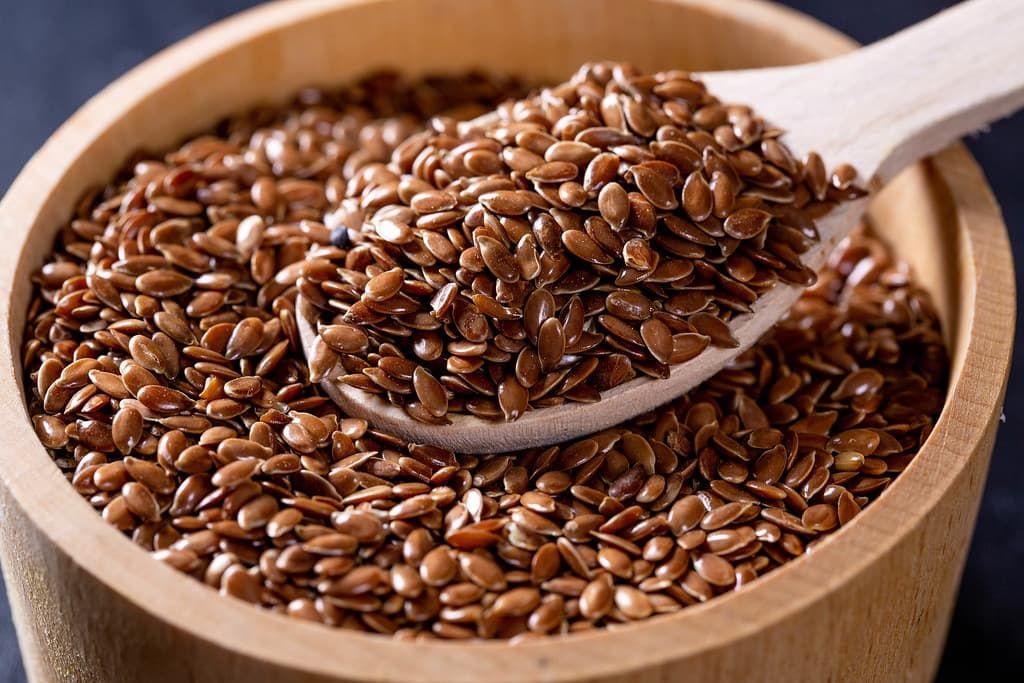Flaxseeds, often called linseeds, are tiny powerhouses of nutrition that have been cultivated for centuries. These seeds, derived from the flax plant (Linum usitatissimum), have garnered attention for their numerous health benefits. Whether you add them to smoothies, salads, or baked goods, flaxseeds are a versatile and nutrient-packed addition to your diet. In this article, we’ll explore the incredible health benefits of flaxseeds, the science behind them, and practical ways to incorporate them into your daily routine.
Nutritional Profile of Flaxseeds
Flaxseeds are small, golden or brown seeds packed with essential nutrients. Here’s a snapshot of their nutritional content (per 1 tablespoon or 7 grams of whole seeds):
- Calories: 37
- Protein: 1.3 grams
- Carbohydrates: 2 grams
- Dietary Fiber: 1.9 grams
- Fat: 3 grams (mostly polyunsaturated fats)
- Omega-3 Fatty Acids: 1.8 grams (ALA – Alpha-linolenic acid)
- Vitamins and Minerals: Rich in magnesium, phosphorus, and thiamine (Vitamin B1)
1. Rich Source of Omega-3 Fatty Acids
Flaxseeds are one of the richest plant-based sources of omega-3 fatty acids, specifically alpha-linolenic acid (ALA). Omega-3s are known for their anti-inflammatory properties and play a crucial role in heart and brain health. Studies suggest that ALA may:
- Lower the risk of cardiovascular diseases.
- Reduce inflammation in the body.
- Support cognitive function and reduce the risk of age-related brain disorders.
2. High in Dietary Fiber
Dietary fiber is essential for maintaining a healthy digestive system, and flaxseeds are an excellent source of both soluble and insoluble fiber. These fibers work synergistically to:
- Promote Gut Health: Soluble fiber feeds beneficial gut bacteria, enhancing gut microbiome health.
- Regulate Bowel Movements: Insoluble fiber adds bulk to stool, preventing constipation.
- Stabilize Blood Sugar Levels: Soluble fiber slows digestion, preventing blood sugar spikes.
A tablespoon of flaxseeds can provide a significant portion of your daily fiber needs.
3. Packed with Lignans
Flaxseeds are the richest dietary source of lignans, a type of phytoestrogen with antioxidant properties. Lignans have been linked to various health benefits, including:
- Hormonal Balance: Lignans mimic estrogen in the body and can help alleviate symptoms of hormonal imbalances in women, such as during menopause.
- Cancer Prevention: Some studies indicate that lignans may reduce the risk of hormone-related cancers, such as breast and prostate cancer.
- Heart Health: Lignans may lower cholesterol levels and improve arterial health.
4. Heart Health Booster
Flaxseeds support heart health through several mechanisms:
- Lowering Cholesterol Levels: The soluble fiber in flaxseeds binds with bile salts, reducing cholesterol absorption and promoting excretion.
- Reducing Blood Pressure: Studies have shown that consuming flaxseeds regularly can significantly lower systolic and diastolic blood pressure.
- Improving Blood Lipid Profiles: The omega-3 fatty acids in flaxseeds can reduce triglycerides and increase HDL (“good”) cholesterol.
5. Aiding Weight Management
Flaxseeds can be a valuable addition to a weight management plan. Their high fiber content promotes satiety, reducing hunger and helping you control calorie intake. Additionally, the healthy fats in flaxseeds can curb cravings and keep you feeling full longer.
6. Supporting Digestive Health
Flaxseeds contain mucilage, a gel-forming soluble fiber that helps soothe and protect the lining of the digestive tract. This is particularly beneficial for individuals with:
- Acid reflux or GERD.
- Irritable bowel syndrome (IBS).
- Constipation or irregular bowel movements.
7. Beneficial for Skin and Hair
Flaxseeds can enhance skin and hair health due to their omega-3 fatty acids, antioxidants, and B vitamins. Regular consumption or topical application of flaxseed oil may:
- Improve skin elasticity and hydration.
- Reduce inflammation and redness associated with skin conditions like acne and eczema.
- Strengthen hair follicles and reduce hair breakage.
8. Blood Sugar Regulation
Flaxseeds may help regulate blood sugar levels, making them particularly beneficial for individuals with type 2 diabetes. The fiber in flaxseeds slows glucose absorption, preventing spikes and crashes in blood sugar.
9. Anti-inflammatory Properties
Chronic inflammation is linked to various diseases, including arthritis, heart disease, and autoimmune conditions. The ALA and lignans in flaxseeds help combat inflammation, reducing the risk of these diseases.
10. Rich in Antioxidants
Flaxseeds are loaded with antioxidants that combat free radicals in the body. This reduces oxidative stress, which is linked to aging and chronic diseases like cancer and cardiovascular conditions.
How to Incorporate Flaxseeds into Your Diet
- Smoothies: Add ground flaxseeds to your morning smoothies for a nutritional boost.
- Baking: Use flaxseed meal in muffins, bread, and pancakes.
- Salads: Sprinkle whole or ground flaxseeds over salads for a crunchy texture.
- Breakfast Bowls: Mix flaxseeds into oatmeal, yogurt, or cereal.
- As an Egg Substitute: Mix 1 tablespoon of flaxseed meal with 2.5 tablespoons of water to replace one egg in recipes.
Flaxseeds: Whole vs. Ground
Whole flaxseeds are harder to digest, meaning some nutrients may pass through the digestive system unused. Ground flaxseeds (flaxseed meal) are easier to digest and offer better nutrient absorption. To maximize benefits, it’s best to consume flaxseeds in their ground form.
Precautions and Side Effects
While flaxseeds are generally safe, consuming them in excess can lead to:
- Digestive Issues: Overconsumption may cause bloating, gas, or diarrhea.
- Hormonal Effects: Due to their phytoestrogen content, individuals with hormone-sensitive conditions should consult a doctor before consuming flaxseeds in large amounts.
- Allergic Reactions: Though rare, some people may be allergic to flaxseeds.
It’s also important to drink plenty of water when consuming flaxseeds to prevent digestive discomfort.
Conclusion
Flaxseeds are a nutritional powerhouse with an impressive array of health benefits. From improving heart health and supporting digestion to regulating hormones and reducing inflammation, these tiny seeds pack a mighty punch. Incorporating flaxseeds into your daily diet is simple and can lead to significant improvements in overall health. As with any dietary addition, moderation is key, and it’s always best to consult with a healthcare professional if you have specific health concerns.
Embrace the power of flaxseeds and unlock their potential for a healthier, happier life!

